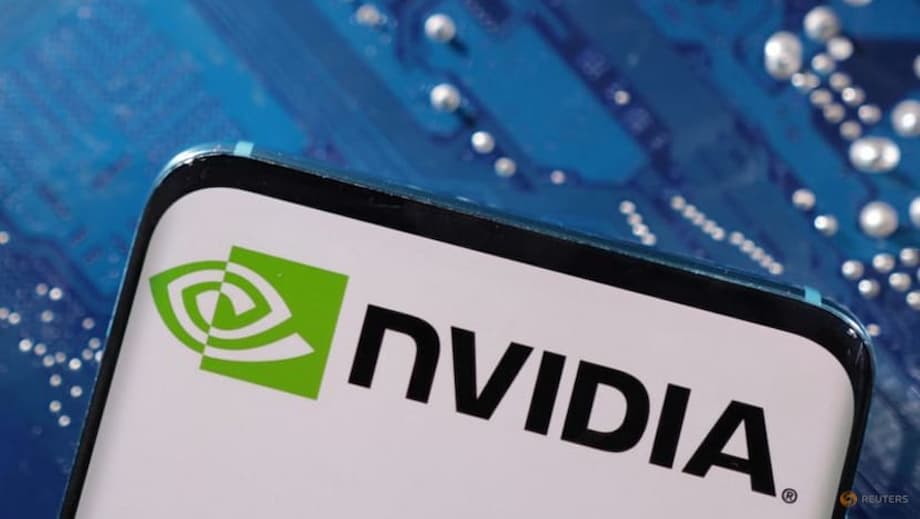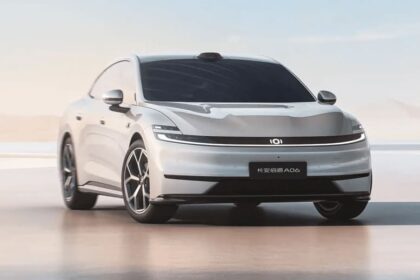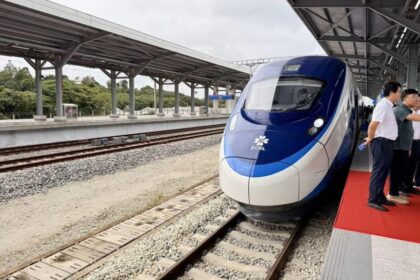US Approves Nvidia H20 Chip Exports to China
The United States government has begun issuing licenses to Nvidia, the world’s leading artificial intelligence (AI) chipmaker, allowing it to export its H20 chips to China. This decision marks a significant shift in US technology export policy and has far-reaching implications for the global semiconductor industry, US-China relations, and the future of AI development. The move follows months of uncertainty, high-stakes lobbying, and escalating trade tensions between the world’s two largest economies.
- US Approves Nvidia H20 Chip Exports to China
- Why Are Nvidia’s H20 Chips So Important?
- The Road to Export Approval: Politics, Lobbying, and Reversal
- Economic Stakes: Billions on the Line for Nvidia and the US Tech Sector
- Broader Implications: US-China Tech Rivalry and the Future of AI
- Security, Trust, and the “Backdoor” Debate
- What’s Next for Nvidia, China, and the Global AI Race?
- In Summary
Why Are Nvidia’s H20 Chips So Important?
Nvidia’s H20 chip is a specialized graphics processing unit (GPU) designed specifically for the Chinese market. It was created in response to US export controls that restrict the sale of Nvidia’s most advanced AI chips to China. These controls, first imposed in 2022 and tightened in 2023, aim to limit China’s access to cutting-edge technology that could be used for military or surveillance purposes. The H20 is a “downgraded” version of Nvidia’s flagship AI chips, engineered to comply with US regulations by reducing certain performance capabilities, such as memory capacity and processing power.
Despite these limitations, the H20 remains a powerful tool for training and running AI models. Chinese tech giants like Tencent, Alibaba, and ByteDance have shown strong demand for the chip, especially as they race to develop their own AI systems and compete with global rivals. According to Nvidia, China accounted for 12.5% of its overall revenue in the first quarter of 2025, with the H20 alone generating $4.6 billion in sales during that period.
AI Chips: The Brains Behind Modern Technology
AI chips like the H20 are at the heart of today’s technological revolution. Unlike traditional computer processors, GPUs are designed to handle the massive parallel computations required for AI tasks such as machine learning, image recognition, and natural language processing. These chips power everything from self-driving cars and medical diagnostics to advanced chatbots and recommendation engines.
Nvidia, founded in 1993, was originally known for making graphics cards for gaming. Over the past decade, it has transformed into the dominant supplier of chips for AI applications, making it a critical player in both the tech industry and global geopolitics.
The Road to Export Approval: Politics, Lobbying, and Reversal
The journey to the US government’s approval of H20 exports was anything but straightforward. In April 2025, the Trump administration (following the Biden administration’s earlier restrictions) imposed a ban on the sale of the H20 chip to China, citing national security concerns. This move threatened to cut Nvidia off from a key market and potentially cost the company up to $8 billion in lost sales for the July quarter alone.
Nvidia’s CEO, Jensen Huang, responded with a high-profile lobbying campaign. He met with President Donald Trump at the White House, personally making the case for why Nvidia should be allowed to sell the H20 chip to China. According to multiple reports, Huang’s direct engagement with the administration played a pivotal role in reversing the ban. However, even after the policy shift, Nvidia faced weeks of delay as the Commerce Department was slow to issue the necessary export licenses.
According to sources familiar with the matter, “Huang’s Oval Office discussion with Trump influenced the decision to proceed with the export approvals.” (Cryptopolitan)
It was only after a second meeting between Huang and Trump that the Bureau of Industry and Security (the division of the Commerce Department responsible for export controls) began approving licenses for the H20 chip. The exact number of licenses issued, the Chinese companies eligible to receive the chips, and the total value of shipments remain unclear.
Behind the Scenes: Security Concerns and Industry Pushback
The debate over whether to allow H20 exports to China has been intense. US security officials and some lawmakers have argued that even downgraded AI chips could bolster China’s military and surveillance capabilities. In a letter to Commerce Secretary Howard Lutnick, a group of security experts warned that approving H20 sales would be a “strategic misstep, threatening the US’s economic and military advantage in AI.” (Cryptopolitan)
Nvidia, for its part, has pushed back strongly against these claims. The company insists that the H20 chip contains no “backdoors” or hidden features that would allow remote access or control, addressing concerns raised by Chinese regulators about potential security risks. Nvidia’s Chief Security Officer, David Reber Jr., wrote in a blog post:
“Nvidia’s GPUs—widely used to train and run AI models—do not and should not have kill switches and backdoors. Permitting covert access or control would make the technology more vulnerable and would fracture trust in US technology.”
This stance echoes the broader resistance of US tech firms to government demands for surveillance access, a debate that has played out in other contexts, such as Apple’s refusal to build backdoors into its devices.
Economic Stakes: Billions on the Line for Nvidia and the US Tech Sector
The financial implications of the export restrictions—and their partial reversal—are enormous. Nvidia had warned that the ban on H20 sales could result in an $8 billion revenue shortfall for the July quarter. The company also disclosed a $5.5 billion charge related to unsold inventory and purchase commitments, though it later revised this figure down by $1 billion after finding ways to reuse some materials.
Shares in Nvidia fell sharply when the restrictions were first announced, reflecting investor anxiety about the company’s future growth. However, the approval of export licenses has provided some relief, with Nvidia’s stock rebounding and analysts expressing cautious optimism about the company’s prospects in China.
Marc Einstein, a tech industry analyst, commented: “While this is certainly a lot of money, this is something Nvidia can bear. As we have seen in the last few days and weeks, this may largely be a negotiating tactic. I wouldn’t be surprised to see some exemptions or changes made to tariff policy in the near future, given this not only impacts Nvidia but the entire US semiconductor ecosystem.” (BBC)
China remains one of the world’s largest markets for semiconductors, and continued access is vital for US chipmakers. In fiscal year 2024, Nvidia reported $17 billion in sales to China, representing about 13% of its total revenue. The company’s leadership has repeatedly warned that losing the Chinese market would erode its competitive edge, especially as domestic Chinese firms like Huawei, Cambricon, and Hygon ramp up their own AI chip production.
Competition from Chinese Rivals
While the export approval is a win for Nvidia, the company faces growing competition from Chinese chipmakers. Huawei, in particular, has aggressively targeted local developers with domestically produced AI chips, seeking to fill any gaps left by US export restrictions. Analysts at Bernstein project that Nvidia’s market share in China’s AI chip sector will decline from 66% in 2024 to 54% in 2025, as local companies gain ground.
Despite these challenges, some analysts remain bullish on Nvidia’s prospects. Needham’s N. Quinn Bolton, for example, predicts strong demand for the H20 and future China-specific GPUs, forecasting significant revenue growth in the Chinese data center market.
Broader Implications: US-China Tech Rivalry and the Future of AI
The saga of Nvidia’s H20 chip is emblematic of the broader strategic competition between the US and China over advanced technology. Successive US administrations have imposed increasingly strict controls on the export of semiconductors and other high-tech goods to China, aiming to slow Beijing’s progress in AI, quantum computing, and military modernization.
These measures have sparked retaliatory actions from China, including trade barriers and efforts to build a self-sufficient semiconductor industry. The result is a gradual “decoupling” of the US and Chinese tech sectors, with each side seeking to reduce dependence on the other. Rui Ma, founder of the Tech Buzz China podcast, observed:
“I expect the US and China AI semiconductor supply chains to be fully decoupled if restrictions stay in place. It doesn’t make any sense for any Chinese customer to be dependent on US chips, especially since there is an oversupply of data centers in China.” (BBC)
For Nvidia and other US chipmakers, this means navigating a complex and rapidly changing landscape. On one hand, they must comply with US regulations and address national security concerns. On the other, they face intense pressure to maintain their global market share and technological leadership.
Policy Shifts and Industry Uncertainty
The US government’s decision to approve H20 exports—after initially banning them—reflects the delicate balancing act policymakers face. While national security remains a top priority, there is also recognition that overly restrictive policies could harm US companies and cede ground to foreign competitors.
The lack of clarity around the scope of the export licenses—how many have been issued, which Chinese firms are eligible, and the value of shipments—adds to the uncertainty. Both Nvidia and the Commerce Department have declined to provide detailed comments, leaving industry observers to speculate about the long-term impact.
Security, Trust, and the “Backdoor” Debate
One of the most contentious issues in the H20 export saga has been the question of security vulnerabilities, so-called “backdoors,” and the potential for remote access or surveillance. Chinese regulators have demanded assurances from Nvidia that its chips do not contain hidden features that could be exploited by foreign governments. US lawmakers, meanwhile, have pushed for mandatory tracking features on advanced chip exports to monitor their use in sensitive applications.
Nvidia has categorically denied the presence of backdoors in its products, arguing that such features would undermine trust in US technology and make chips more vulnerable to hacking. The company’s stance is consistent with the broader position of the US tech industry, which has long resisted government efforts to mandate surveillance access to commercial products.
This debate is not unique to Nvidia. In 2016, Apple famously refused an FBI demand to build custom software to unlock a shooter’s iPhone, arguing that creating a backdoor would set a dangerous precedent. More recently, Apple resisted what it described as a secret UK government order seeking backdoor access to iCloud data. These cases highlight the ongoing tension between security, privacy, and commercial interests in the digital age.
What’s Next for Nvidia, China, and the Global AI Race?
With the US government now granting export licenses for the H20 chip, Nvidia has regained access to a crucial market—at least for now. The company is expected to continue developing China-specific versions of its AI chips, carefully calibrating their capabilities to comply with evolving US regulations. At the same time, Chinese tech giants and startups are likely to accelerate their efforts to develop homegrown alternatives, reducing their reliance on US technology.
The broader US-China tech rivalry shows no signs of abating. Both countries view leadership in AI and semiconductors as essential to their economic and national security. As a result, the rules governing technology exports are likely to remain in flux, with companies like Nvidia caught in the crossfire.
For global businesses, investors, and policymakers, the Nvidia H20 saga offers a window into the complex interplay of innovation, security, and geopolitics that will shape the future of technology for years to come.
In Summary
- The US Commerce Department has begun issuing licenses to Nvidia, allowing the export of its H20 AI chips to China after months of uncertainty and lobbying.
- The H20 chip was designed specifically for the Chinese market to comply with US export controls, but its sale was initially banned in April 2025 due to national security concerns.
- Nvidia CEO Jensen Huang’s direct engagement with President Trump played a key role in reversing the ban and expediting license approvals.
- The export approval averts a potential $8 billion revenue loss for Nvidia and helps the company maintain its presence in the vital Chinese market.
- Despite the approval, Nvidia faces growing competition from Chinese chipmakers like Huawei, and its market share in China is expected to decline.
- The saga highlights the ongoing US-China tech rivalry, the challenges of balancing security and economic interests, and the strategic importance of AI chips in the global economy.
- Debates over security, backdoors, and surveillance access remain central to the future of technology exports and international trust in US tech products.












